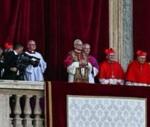You are here
Plagiarism and US politics
Jan 21,2017 - Last updated at Jan 21,2017
Last week witnessed another case of plagiarism in US politics. It involved Monica Crowley, a writer, analyst and Republican-oriented commentator who regularly appears on Fox News and who was going to be appointed as senior director of strategic communications for the US National Security Council.
According to Politico, Crowley “plagiarised numerous passages in her Ph.D. dissertation”, which was submitted to Columbia University in 2000.
Earlier, CNN — not to present it as a purveyor of truth or honest reporting; all one needs to do is look at their coverage of the Middle East in general and Palestine in particular — found that Crowley’s book “What the [Bleep] Just Happened”, which was published by HarperCollins in 2012, included passages that were lifted from other references.
HarperCollins accordingly withdrew the book so that the writer could rewrite and rightly document the plagiarised passages. (It is actually in the best of HarperCollins’s interests to republish the book because of the publicity that it has now garnered).
What is troubling is that very few discuss Crowley’s plagiarism despite the fact that plagiarism is a serious crime.
According to Webster’s dictionary, to plagiarise is “to steal and pass off (the ideas or words of another) as one’s own” or, more clearly, “to commit literary theft”.
In academic circles, plagiarising leads to disastrous consequences such as suspension from the institution to which one belongs.
Despite its gravity, the event was either seen as a shocking incident or put on the back burner.
Those who ignore it are complicitous with the crime, while those who sentimentalise it make us forget about an underlying pattern and a larger context in American — and perhaps world and European politics (in which case a few European ministers had to resign).
Once Crowley’s crime is placed within that larger context, one can reach far deeper conclusions and more nuanced observations.
Not long ago, Melania Trump, the wife of the president-elect plagiarised her speech from Michelle Obama’s — a fact that was attributed to one of the speech writers who offered to resign.
It seems that not many took that situation seriously. Else, Trump would not have won the election.
But plagiarism in politics is far more complicated.
In a Washington Post article, “Monica Crowley, Joe Biden, and when plagiarism is a capital political crime”, Aaron Blake argues: “Plagiarism itself isn’t generally a capital political crime, plagiarism that suggests other foibles and character flaws can be.”
Blake reminds his readers of other examples from US politics: Senator Rand Paul and Vice President Joe Biden.
Whereas Paul’s 2013 plagiarism was not damaging to his career, Biden’s 1988 case was and contributed to ending his presidential campaign.
David Greenberg, whom Blake quotes at some length, suggests that what exacerbated Biden’s plagiarism was his other flaws, primarily fraudulent behaviour, which extended to other aspects of his life.
Plagiarism, obviously, crosses party lines.
In 2008, Obama plagiarised a 2006 speech by Deval Patrick, the then governor of Massachusetts.
Another, more telling, case of plagiarism is Alan Dershowitz’s “The Case for Israel”, which, according to Norman Finkelstein and other scholars, is replete with plagiarised parts and inaccuracies.
Given the authority and support that Dershowitz had at the time — and still has — he did not experience much discreditation.
Apart from committing a crime that tarnishes — and occasionally damages — the reputation of the individuals who commit it, what does this pattern suggest?
How should one wrap his or her head around it?
I would like to offer two possible approaches to these two questions.
First, it is clear that despite those politicians’ strenuous efforts to attribute to themselves statements that neither they nor their speechwriters produced, their dependence on others — and this is not to condone their criminal behaviour — is undeniable.
That is, it has become clearer and clearer that they cannot live on their own without seeking others’ help. To put it more strongly, they may have noticed that the days of “triumphal protagonism”, in the words of R. Radhakrishnan, are numbered, that it is anachronistic for a politician to produce himself or herself as a heroic individual placed on a pedestal.
Yet, that protagonism or heroism should be understood more profoundly, so a second approach is needed.
In his brilliant article “Flights of the human as flights from the human”, Radhakrishnan states what many take as axiomatic: “Truth alone will triumph.”
He explains that that discourse equates truth with triumph.
Radhakrishnan eloquently writes: “It is not so much that Truth prevailed because it was the Truth, but rather, it was the act of winning that differentiated truth from untruth. Even Truth to ultimately validate itself has to see itself in the winner’s circle. In other words, truth cannot be persuasive in a way that makes winning or triumph seem silly, irrelevant, quite fatuous.”
A simplistic way of thinking about Radhakrishnan’s word is to suggest that the truth is always associated with the victorious.
For, when politicians triumph and have power, whatever they say becomes legitimate and truthful, regardless of whether they plagiarise or lie or not.
In this conception of truth, those who do not have power are not believed and whatever they say is of secondary importance, always already plagiarised, childish, clichéd and even preposterous.
Endorsing this premise that underpins triumphal truth can only bring more calamities to the world.
To counteract that truth, perhaps one has a few alternatives, chief among which is following the example of the Palestinian literary critic and intellectual Edward Said: speaking truth to power.
The writer, a Fulbright scholar, contributed this article to The Jordan Times.












